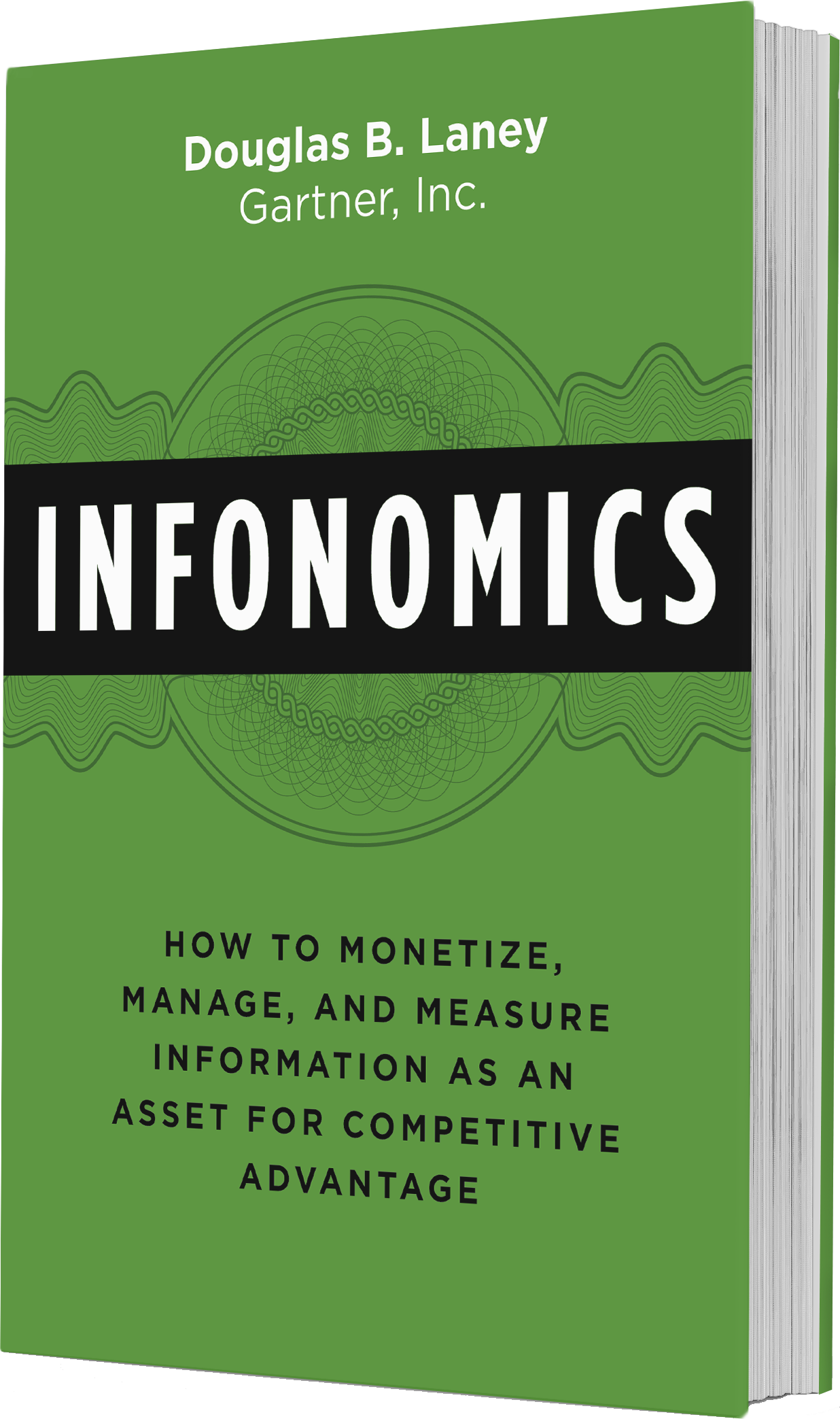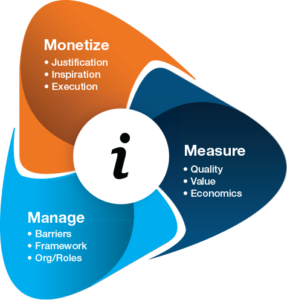
Laney defines Infonomics as, “the theory, study and discipline of asserting economic significance to information.” (page 9). In this sense, his book provides a practical set of questions for business professionals to ask when trying to work out if there is hidden “gold” in their data. The examples he includes anchor the more theoretical aspects of the book to the realities of 21st century business. He breaks infonomics down into 3 key processes: Monetize, Manage, Measure – see below.

What elevates this book from many other guides on commercialising information assets is the acknowledgement that this activity should be looked at much more broadly than simply the exchange of internal data assets for cash. To this end, Laney lists what he calls the Top Information Monetization Myths:
Information must be sold or monetized;
Monetization requires an exchange of cash;
Monetization only involves your own information;
Monetized information typically is in raw form;
One must be in the information business to monetize information;
Few other would want our information;
It’s best for us just to share our information with our suppliers and partners. (page 12-13)
Laney’s long experience at Gartner ensures the book is grounded in the real-world of information management and the challenges that managers face at technical, commercial and legal levels. I found his description of “dark data” particularly interesting as it highlights some of the less obvious benefits to managing information assets. Laney defines dark data as “information collected during the course of business that remains in archives, is not generally accessible, or is not structured sufficiently for analysis.” (page 2). He gives the example of beer wastage in bars and restaurants where kegs/barrels are changed too early and typically end up wasting 15% of the beer. SteadyServ uses sensors in the kegs to monitor levels and provides real-time updates to all players in the supply chain via a mobile app. Just as the book, Information Rules by Hal Varian and Carl Shapiro in 1998 outlined the new rules of digital information in terms of pricing and marketing strategies for the emerging internet economy, so Infonomics provides an essential starting point for anyone charged with leveraging information assets in the world of big data and artificial intelligence (AI).
